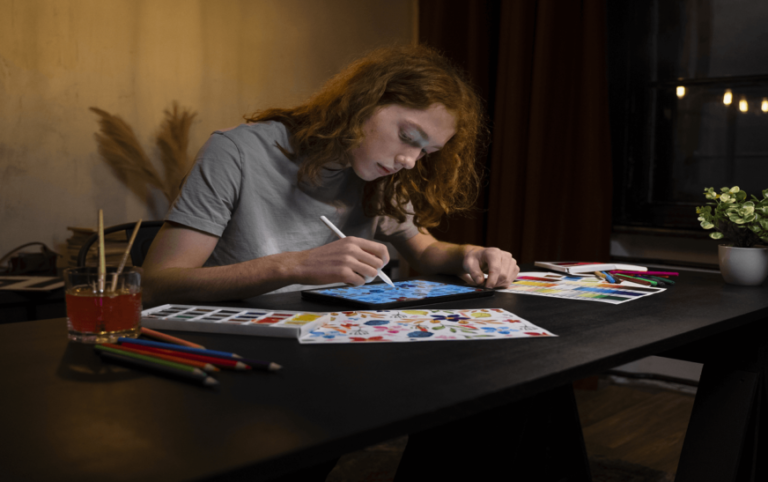
Design Trends July 2024 Web
Introduction to Design Trends July 2024 Web
The field of web design is exploding with new ideas and cutting-edge concepts as we head towards Design Trends July 2024 Web. The constantly changing digital landscape forces designers to reconsider existing approaches and adopt fresh fads. This month has brought about a fundamental shift in the way we approach online standards, not just surface-level adjustments.
User experiences will be shaped by the design decisions made now for years to come, from bold colour schemes to minimalist aesthetics. It is imperative to stay current with these trends whether you are a seasoned designer or are just getting started. Let’s examine the hottest topics in Design Trends July 2024 Web this month and see how they might improve your work!
The Evolution of Web Standards
From the early days of the internet, web standards have advanced significantly. When websites were first developed, there were few criteria followed, which resulted in uneven user experiences on various platforms.
As technology developed, so did the requirement for consistency. Important turning points were reached with the advent of HTML and CSS. They gave web pages structure and style, giving designers greater creative licence while maintaining compatibility.
As mobile devices have grown in popularity, responsive design has become crucial. Website developers had to modify their designs to accommodate different screen widths using fluid layouts. This change brought to light how crucial usability is to design.
Web standards of today place equal emphasis on performance and accessibility as well as aesthetics. These projects are advanced by groups like W3C, which disseminate best practices that improve search engine optimization and user experience.
This development is a result of our continuous efforts to enhance our interactions with digital environments. Every innovation modifies our perception of what actually constitutes effective Design Trends July 2024 Web.
Current Design Trends in 2024
As 2024 approaches, dramatic and immersive experiences are becoming more and more popular in design. The palette is dominated by vivid hues that draw the eye and arouse feelings. Subtle gradients give depth without being overpowering to the user.
Additionally, typography is conveying a message. Fonts that are large and expressive take centre stage and effectively and clearly convey messages. Modern minimalist designs also embrace white space and let important details take centre stage.
Micro-interactions are another interesting trend. These subdued animations increase interaction with the user by giving immediate response. They bring a little joy to routine website tasks.
Design sustainability is becoming more popular as companies aim for environmentally responsible aesthetics. This strategy supports more general environmental objectives while simultaneously appealing to environmentally concerned consumers.
These patterns show a persistent search for creativity that appeals to people much in today’s hectic digital environment.
Adapting to the Changing Landscape of Web Design
Web design is an active, dynamic phenomenon. Aesthetics and user expectations change with technology. It is imperative to remain abreast of these changes.
In order to adjust efficiently, designers need to be flexible. This entails keeping up with the latest innovations in the field of tools and techniques. Innovations that improve user engagement can come from experimentation.
The increasing range of devices underscores the importance of responsive design. Users are more likely to trust and return when they have a seamless experience across many displays.
Another important factor in adjusting to changes is collaboration. Including developers, marketers, and stakeholders in the design process guarantees that all viewpoints are taken into account.
Keeping up with international trends affects local design as well. If properly styled, anything that catches the eye in one part of the world could have resonance in another. In 2024, embracing this interconnectedness will boost the inventiveness of web design.
Incorporating Accessibility and User Experience in Design Trends
Nowadays, accessibility is a basic premise of online design rather than an afterthought. As we embrace the Design Trends July 2024 Web, inclusion is a top priority for designers.
It can greatly improve things to implement features like keyboard navigation and screen reader compatibility. These components guarantee seamless content access for all users, irrespective of ability.
Accessibility and user experience (UX) go hand in hand. Higher engagement rates are frequently the outcome of a website that meets a variety of demands. Everyone can feel welcome in an environment created with intuitive design and readable typography.
Additionally, colour contrast is quite important. All users’ readability is improved by selecting palettes that are both aesthetically pleasing and easy on the eyes.
Enhancement is also facilitated by adding feedback loops where people can exchange their experiences. Direct interaction with a range of audiences produces designs that effectively solve particular problems and have broad resonance.
The Impact of Artificial Intelligence on Web Design
Web design is undergoing a spectacular shift thanks to artificial intelligence. AI is now used by designers to produce individualised user experiences. With the use of this technology, which analyses visitor behaviour, layout and content can be customised.
AI-powered technologies expedite the actual design process. Algorithms for generative design can generate several design iterations according to predetermined criteria, which increases creativity and saves time.
Additionally, chatbots are becoming commonplace. They enhance user engagement on websites by offering real-time assistance.
Additionally, predictive analytics is quite important. Designers may anticipate user preferences and demands and proactively modify layouts to keep users interested for longer.
Anticipate considerably more of an impact from AI in all facets of web development as 2024 approaches. What is feasible in virtual environments will be redefined by the combination of human creativity and artificial intelligence.
Conclusion
Upon examining the diverse array of Design Trends July 2024 Web, it is evident that flexibility is essential. Accepting the way web standards are evolving guarantees that your designs will always be compelling and current. The prevailing patterns indicate a move towards experiences that are immersive, bold font, and minimalist.
In contemporary web design, accessibility is still crucial. You may reach a wider audience and improve satisfaction and engagement by putting the user experience first.
Because it streamlines procedures and provides insights into user behaviour, artificial intelligence is revolutionising the way designers operate. This innovation in technology creates new opportunities for creative solutions that can enhance your vision.
In order to stay ahead of the curve in this dynamic environment, one must be willing to try new things and keep the fundamentals of excellent design in mind. As July 2024 draws near, use this opportunity to showcase your creativity against a backdrop of changing trends and standards.



